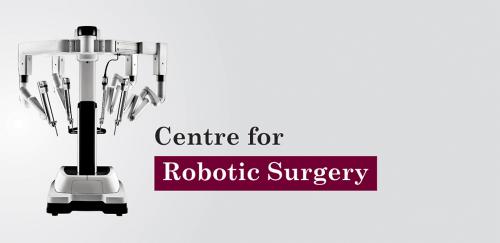Know How Robotic Surgery Has Reformed Cancer Treatment

Cancer
is a progressive disease triggered by the abnormal multiplication of unhealthy
cells which slowly replace all the healthy cells and eventually metastasize to
the other body parts via the various blood channels. Surgery is one of the
oldest and most effective treatments for cancer. This aims at the removal of
the malignant tumours and damaged cells to prevent them from causing any
further damage. Over the years, surgical procedures have evolved tremendously.
One of the greatest achievements in the field of surgical oncology is the
advent of robotic surgery which has minimized various risks and complications
that are associated with traditional surgery.
Robotic
cancer surgery is based on the da Vinci Surgical System which is named after Leonardo da Vinci. It is a minimally invasive
procedure and does not require any large cuts or incisions. The whole surgery
is carried out with the help of a specially designed console which is operated
by the doctor with the help of a magnified, high-definition 3D view of the area
concerned.
The
instruments move with extreme degrees of freedom, thereby enabling the doctors
to reach narrow and confined areas which could not be accessed by the
traditional surgery. The surgery is carried out in a radical manner, inducing
minimal damage to the nearby structures and tissues. Cancer robotic surgery
in India has proved to be a boon for numerous patients who were not considered
to be eligible for traditional surgery.
Benefits of robotic surgery over
conventional surgery
The various
benefits of robotic surgery include:
·
Shorter recovery period which means
that you can return back to your normal lifestyle within a few days.
·
Minimal pain and discomfort as the
incisions are very small and heal within a few days.
·
Least to no scarring
·
No unnecessary loss of blood which
is very common in the case of conventional surgery
·
Alleviated risks of infection at
the site of incision
·
Better visualization and access to
the affected areas.
Scope of robotic surgery
Robotic cancer
surgery can be used to treat only certain types of cancer and not all of them.
·
Thorax
and Lung Cancer- This is carried out by making a very small
incision in the patient’s chest to remove the tumour and scrape off some
healthy tissues from the affected lobe. Robotic lobectomy has been highly
successful in treating lung cancer. Robotic-assisted Thoracic Surgery (RATS)
ensures higher precision, enhanced vision and improved dexterity which help to increase the efficiency of
the surgery.
·
Thyroid
Cancer-Commonly known as robotic thyroidectomy, it is
a minimally invasive procedure that aims at the removal of the affected thyroid
gland or a part of it without leaving behind any post-surgical scar. The
incision is made either behind the patient’s ear or his arm. Originally
developed in South Korea, the procedure is now offered at all the best hospitals in Delhi and other parts
of India.
·
Gynae
Cancers- the use of robotic surgeries to treat major Gynaecancers,
i.e. endometrial cancer, cervical cancer and ovarian cancer,is
one of the latest developments in the field of surgical oncology. Some of the
most common procedures recommended by the best
doctors include hysterectomies, myomectomies and lymph node
biopsies. Apart from the above-mentioned malignancies, robotic surgery can also
help to treat problems like pelvic prolapse, fibroids, endometriosis and
excessive menstrual bleeding.
·
Gastric
Cancers- Also known as gastrointestinal cancers, these
involve all the malignancies related to the gastrointestinal tract. Robotic
surgery has proved to be a very effective alternative to traditional
laparoscopic techniques. Procedures like gastric and liver resections,
colectomies, radical pancreatic surgeries, etc. have proved to be a boon for
numerous patients.
Post Your Ad Here
Comments